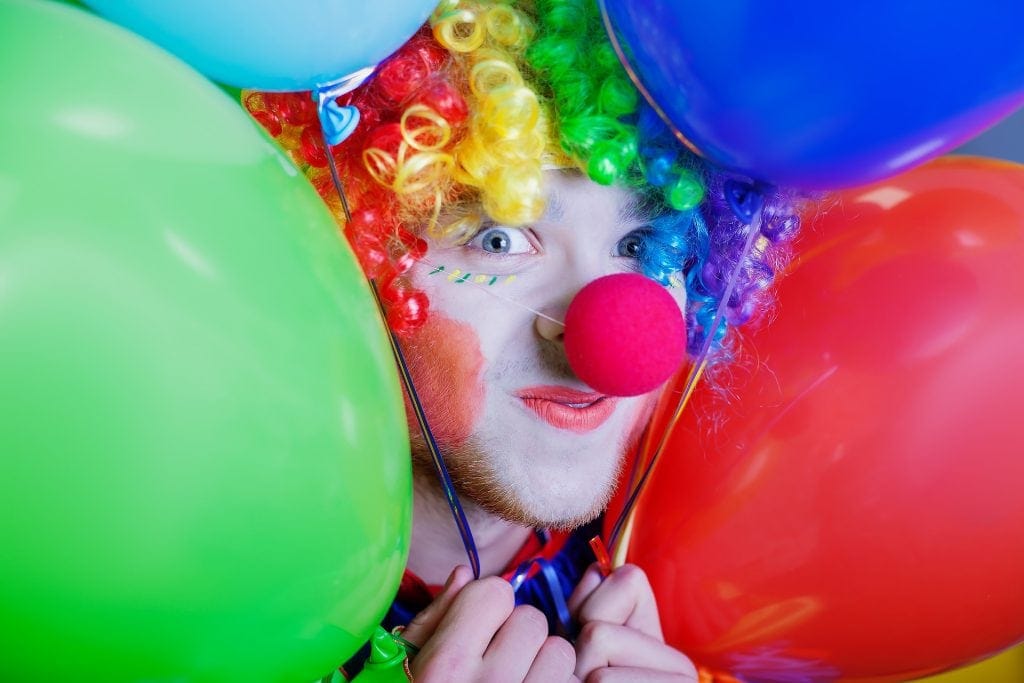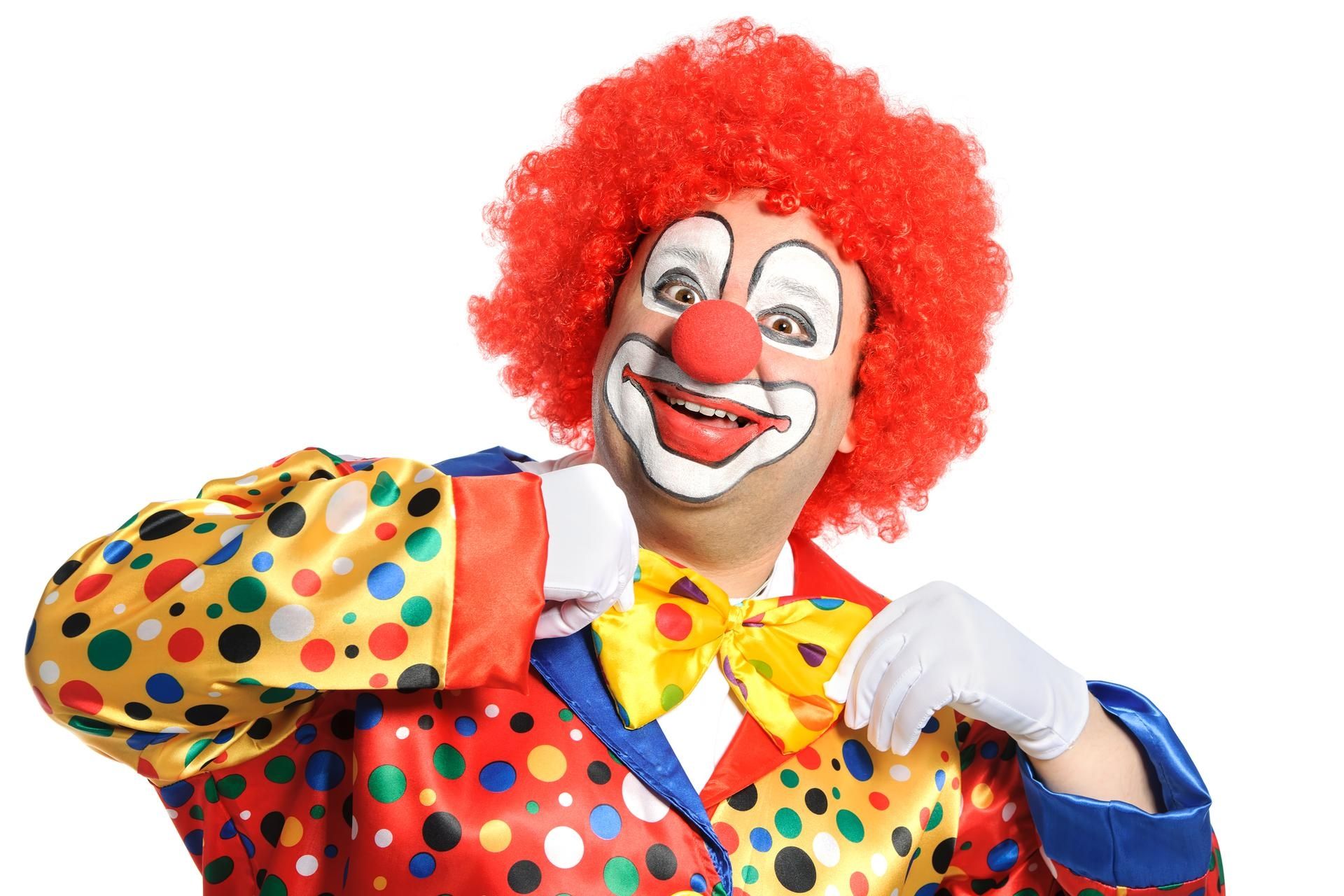Dreams have long fascinated humanity, serving as windows into our subconscious minds and offering glimpses of our deepest fears, desires, and emotions. Among the myriad of dream symbols, clowns hold a unique and often perplexing place. These colorful, enigmatic figures can evoke a wide range of emotions, from joy and laughter to fear and unease. In this comprehensive exploration, we’ll delve into the rich symbolism and psychological interpretations of dreams involving clowns, uncovering the hidden messages they may hold for dreamers.
The Multifaceted Symbolism of Clowns in Dreams
Clowns are complex symbols, carrying a wealth of meanings that can vary greatly depending on cultural context, personal experiences, and the specific details of the dream. At their core, clowns represent duality – the juxtaposition of humor and sadness, lightheartedness and depth, and the masks we wear in our daily lives.
In dreams, clowns often symbolize:
- Deception and hidden truths
- The need for emotional release or expression
- Feelings of vulnerability or insecurity
- The desire to entertain or please others
- Fear of the unknown or the unfamiliar
- Childhood memories or nostalgia
- The struggle between our public and private selves
The specific actions, colors, and contexts in which clowns appear in dreams can provide additional layers of meaning. For example, a brightly colored clown might represent joy or creativity, while a dark or sinister clown could symbolize hidden fears or repressed emotions.
Cultural Interpretations of Clown Dreams
The symbolism of clowns in dreams can vary significantly across cultures. In Western societies, clowns are often associated with entertainment, circuses, and childhood experiences. However, the perception of clowns has evolved over time, with the emergence of the “creepy clown” archetype in popular culture influencing dream interpretations.
In some Native American cultures, clowns or trickster figures in dreams may represent spiritual guides or teachers, offering lessons through humor and mischief. In certain Asian cultures, dreaming of clowns might be interpreted as a sign of good fortune or unexpected surprises.
Psychological Perspectives on Clown Dreams
From a psychological standpoint, dreams about clowns can reveal much about our inner emotional landscape. Dr. Carl Jung, the renowned psychoanalyst, viewed clowns as representations of the “trickster” archetype – a complex figure that embodies both wisdom and folly, often challenging societal norms and encouraging personal growth through unconventional means.
Freudian psychology might interpret clown dreams as expressions of repressed desires or anxieties, particularly those related to childhood experiences or sexual development. The exaggerated features and behaviors of clowns could symbolize distorted self-perceptions or fears about how others see us.
Modern dream analysts often view clown dreams as reflections of our inner emotional states. Dr. Rubin Naiman, a sleep and dream specialist, suggests that clowns in dreams may represent our need to lighten up or find humor in difficult situations. Conversely, they might also point to feelings of inauthenticity or the fear of being perceived as foolish.
Clown Dreams and Personal Growth
Dreams featuring clowns can offer valuable insights into our personal growth journey. They may indicate:
- The need to embrace spontaneity and playfulness in life
- A call to confront and overcome fears or insecurities
- The importance of authenticity and removing masks we wear in daily life
- A reminder to find humor and joy in challenging situations
- The potential for creative problem-solving and thinking outside the box
Love and Relationships in Clown Dreams
In the context of love and relationships, clown dreams can carry various meanings:
- A happy, friendly clown might represent joy and laughter in a relationship
- A sad or crying clown could symbolize hidden sorrows or unmet emotional needs
- Multiple clowns might indicate feelings of being overwhelmed by social obligations or the need to please others in relationships
- A menacing clown could represent fears of betrayal or deception in love
Career and Abundance Symbolism in Clown Dreams
When it comes to career and abundance, clown dreams might suggest:
- The need for more creativity or innovation in your professional life
- Feelings of being undervalued or not taken seriously at work
- The importance of maintaining a work-life balance and not taking things too seriously
- Potential opportunities for growth through unconventional means or unexpected sources
Spiritual Meaning of Clowns in Dreams
From a spiritual perspective, clowns in dreams can carry profound significance. They may be seen as messengers from the subconscious or even higher realms, bringing important lessons wrapped in the guise of humor and playfulness. Clowns can represent the spiritual journey itself – full of ups and downs, laughter and tears, triumphs and setbacks.
In some spiritual traditions, the clown is viewed as a sacred figure, embodying the divine fool who teaches through apparent nonsense and contradiction. Dreaming of such a clown might indicate a need for spiritual growth, urging the dreamer to look beyond surface appearances and seek deeper truths.
Biblical Meaning of Clowns in Dreams
While clowns as we know them today do not appear in biblical texts, the concept of the fool or jester does have biblical significance. In Christian dream interpretation, a clown might be seen as a representation of worldly folly contrasted with divine wisdom. The apostle Paul writes about becoming a “fool for Christ,” suggesting that true wisdom may appear foolish to the world.
Alternatively, a clown in a dream could be interpreted as a warning against deception or false teachings, urging the dreamer to discern truth from illusion. As with all dream symbols, the context and personal faith of the dreamer play crucial roles in interpreting the biblical significance of clowns in dreams.
Common Dream Scenarios Involving Clowns
- Seeing a Clown: This common scenario often reflects the dreamer’s current emotional state or their perception of a situation in their waking life. A friendly clown might suggest joy or optimism, while a scary clown could indicate hidden fears or anxieties.
- Being Chased by a Clown: This unsettling dream may represent running from one’s fears, avoiding confrontation, or feeling pursued by responsibilities or expectations that seem overwhelming or ridiculous.
- Becoming a Clown: Transforming into a clown in a dream might symbolize a desire to be more carefree, a fear of not being taken seriously, or feelings of inauthenticity in one’s daily life.
- Interacting with a Sad Clown: This scenario often points to hidden sorrows, unacknowledged emotions, or the recognition of pain behind a cheerful facade – either in oneself or others.
- Fighting with a Clown: Such a dream might represent internal conflicts, the struggle between seriousness and playfulness, or confrontations with aspects of oneself that feel uncomfortable or embarrassing.
- A Clown Performing: Watching a clown perform in a dream could symbolize a need for more entertainment or lightheartedness in life, or it might represent feelings about how one is perceived by others.
- A Clown Offering Something: If a clown offers an object or gift in a dream, it’s worth paying attention to what’s being offered. This could represent unexpected opportunities, hidden truths, or lessons presented in surprising ways.
Expert Opinions and Studies on Clown Dreams
Dr. Kelly Bulkeley, a dream researcher and visiting scholar at the Graduate Theological Union, suggests that the prevalence of clown dreams may be increasing due to the growing cultural anxiety around clowns. He notes that dreams often reflect and process societal fears and trends.
A study published in the International Journal of Dream Research found that negative emotions associated with clowns in dreams were more common among individuals who reported a fear of clowns (coulrophobia) in waking life. This suggests that personal experiences and phobias can significantly influence the emotional tone of clown dreams.
Dr. Tore Nielsen, director of the Dream and Nightmare Laboratory at the University of Montreal, proposes that the unsettling nature of clown dreams might stem from their violation of normal facial recognition patterns. The exaggerated features and makeup of clowns can trigger the brain’s threat detection systems, leading to feelings of unease even in dreams.
Practical Advice for Decoding Clown Dreams
If you frequently dream about clowns, consider the following approaches to decode their meaning in the context of your personal life:
- Keep a Dream Journal: Record your clown dreams in detail, noting emotions, actions, and any recurring themes. Look for patterns over time.
- Reflect on Your Emotions: Pay attention to how you feel during and after the dream. Are you amused, frightened, or confused? These emotions can provide clues to the dream’s significance.
- Consider Recent Events: Think about any recent experiences or challenges that might be reflected in the clown symbolism of your dreams.
- Explore Personal Associations: Reflect on your personal history with clowns. Childhood memories, cultural influences, and media portrayals can all shape your subconscious associations.
- Practice Mindfulness: Engaging in mindfulness or meditation practices can help you become more attuned to your subconscious mind and the messages it may be sending through dreams.
- Seek Professional Guidance: If clown dreams are causing distress or you’re struggling to interpret them, consider speaking with a dream analyst or therapist who specializes in dream work.
- Embrace the Metaphor: Try to look beyond the literal image of the clown and consider what it might represent metaphorically in your life. Are you hiding behind a mask? Do you need more laughter and joy?
- Act on Insights: If your clown dreams reveal areas for personal growth or change, take actionable steps in your waking life to address these insights.
In conclusion, dreams about clowns are rich with symbolism and potential meanings. By approaching these dreams with curiosity and openness, you can unlock valuable insights into your emotions, relationships, and personal growth journey. Remember that the most meaningful interpretation is one that resonates with your own experiences and intuition. Let the enigmatic figure of the clown in your dreams guide you towards greater self-understanding and personal development.

Was the clown dream meaning helpful to you? Please share this dream with your friends.
